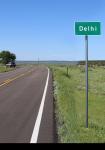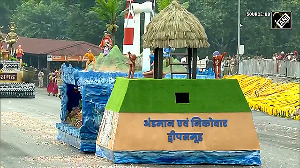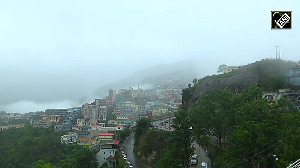Apparently unhappy over New Delhi's handling of the Tibet issue, China on Friday chose not to invite any Indian diplomat in the tour of foreign envoys to riot-scarred Lhasa, amid intensified global pressure to stop the crackdown on Tibetans and open a dialogue with the Dalai Lama.
In a hurriedly arranged visit, China escorted a group of foreign diplomats to Lhasa to showcase its version of the goings on in the Tibetan capital. The Indian embassy did not receive any invitation, sources said.
Diplomats from 15 countries, including the United States, Britain, Russia, France, Japan, Tanzania, Brazil, Singapore, Spain, Canada, Italy were reportedly among those taken to Lhasa, where the most vicious protests against China in two decades left at least 20 dead and 700 injured.
China, which has been sensitive on the Tibet issue, had summoned Indian Ambassador Nirupama Rao to Foreign Office past midnight last week to convey concerns over storming of its Embassy in New Delhi by a group of Tibetan protesters.
The visit was part of China's stepped up damage control exercise and came a day after a team of foreign journalists were taken to the Tibetan capital, where they witnessed an angry outburst by monks, who said the government was "telling lies".
With China's image being badly bruised ahead of the Beijing Olympics, European Union foreign ministers debated whether they should boycott the August 8 opening ceremony. Several eastern European leaders, including from Czech, Poland and Estonia, have already said that they will keep away though none of them is calling it a boycott.
The US, which has been pressing China to hold talks with the Dalai Lama, welcomed the Chinese step, but said it was not enough.
"We see this as a step in the right direction, but it's not a substitute for the ability of our diplomats, as well as others, to travel not only to Lhasa, but into the surrounding area specifically," State Department spokesman Sean McCormack told reporters.
President George W Bush talked on phone with his Chinese counterpart Hu Jintao on Wednesday, pressing on the need for substantive dialogue with the Dalai Lama.
China has accused the Dalai Lama, leader of the Tibetan government in exile in India, of masterminding the unrest aimed at sabotaging the Beijing Olympics. The 72-year exiled Nobel laureate has vehemently denied the charge.
Tibetan groups claimed that the three main monasteries in Lhasa were cut off by authorities and monks were forced to live without food, water or electricity since the protests erupted.





